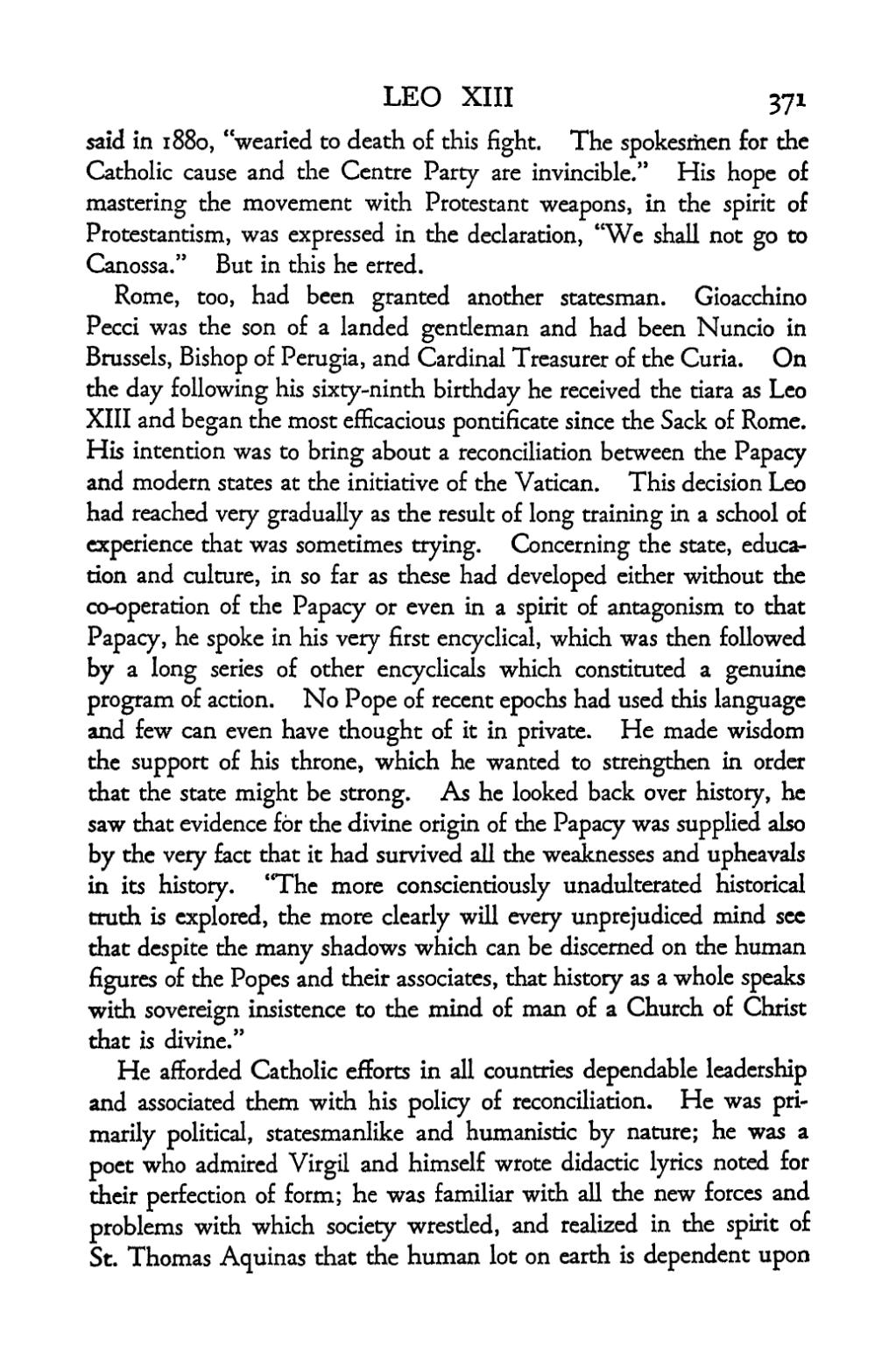XIII 371
said in 1880, "wearied to death of this fight. The spokesmen for the Catholic cause and the Centre Party are invincible." His hope of mastering the movement with Protestant weapons, in the spirit of Protestantism, was expressed in the declaration, "We shall not go to Canossa." But in this he erred.
Rome, too, had been granted another statesman. Gioacchino Pecci was the son of a landed gentleman and had been Nuncio in Brussels, Bishop of Perugia, and Cardinal Treasurer of the Curia. On the day following his sixty-ninth birthday he received the tiara as Leo XIII and began the most efficacious pontificate since the Sack of Rome. His intention was to bring about a reconciliation between the Papacy and modern states at the initiative of the Vatican. This decision Leo had reached very gradually as the result of long training in a school of experience that was sometimes trying. Concerning the state, educa- tion and culture, in so far as these had developed either without the co-operation of the Papacy or even in a spirit of antagonism to that Papacy, he spoke in his very first encyclical, which was then followed by a long series of other encyclicals which constituted a genuine program of action. No Pope of recent epochs had used this language and few can even have thought of it in private. He made wisdom the support of his throne, which he wanted to strengthen in order that the state might be strong. As he looked back over history, he saw that evidence for the divine origin of the Papacy was supplied also by the very fact that it had survived all the weaknesses and upheavals in its history. "The more conscientiously unadulterated historical truth is explored, the more clearly will every unprejudiced mind see that despite the many shadows which can be discerned on the human figures of the Popes and their associates, that history as a whole speaks with sovereign insistence to the mind of man of a Church of Christ that is divine."
He afforded Catholic efforts in all countries dependable leadership and associated them with his policy of reconciliation. He was pri- marily political, statesmanlike and humanistic by nature; he was a poet who admired Virgil and himself wrote didactic lyrics noted for their perfection of form; he was familiar with all the new forces and problems with which society wrestled, and realized in the spirit of St. Thomas Aquinas that the human lot on earth is dependent upon
37
